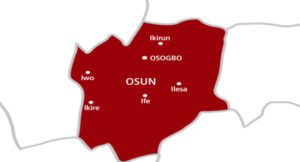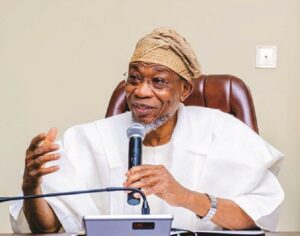
Dapo Abiodun: A date with history
By Funmi Branco
The 2023 presidential and National Assembly elections have come and gone. Prior to the elections, there had been a lot of trepidation, anxiety and tension across the country, including Ogun State. But the elections turned out to be mostly peaceful. Regardless of the imperfections in the system, a president-elect, Asiwaju Bola Ahmed Tinubu, has emerged and the country must move forward. One thing is striking, though: during the elections, Ogun State, which had always been a reference point in Nigeria’s political history, retained its strategic position. It was in Ogun State that Tinubu, sensing last-minute efforts by some power brokers within the APC fold to deny him the presidential ticket of the party, uttered his now famous Emilokan statement. It was also in Ogun State that he decried the efforts to suppress his impending electoral victory through the contrived Central Bank of Nigeria’s (CBN) naira redesign policy and the fuel crisis. In essence, his political victory is intertwined with Ogun State.
The APC’s massive victory is indeed instructive because in the last four years, Governor Abiodun’s predecessor, Senator Ibikunle Amosun, had shown utter disdain for the governor and the party. He had boldly proclaimed that he would work against him and against the APC, the party on whose platform he governed Ogun State and represented Ogun Central as senator. And indeed he worked against the president-elect because the presidential candidate of the African Democratic Congress (ADC), his adopted party, had considerable votes in the state during the presidential and National Assembly elections. During the build-up to the elections, ADC vehicles were everywhere in the state, blaring forth loud music. Amosun exhibited his preference for the ADC presidential candidate but as God would have it, the election turned out to be a masterpiece for APC in the state.
The APC presidential candidate, Asiwaju Bola Tinubu, emerged the winner of the presidential election in the state with 341,554 votes across the 20 local government areas. The Peoples Democratic Party (PDP) candidate, Atiku Abubakar, could only trail him at a distant second with123,831 votes, which is less than the required 25 percent that might have given him some hope. On his part, Peter Obi of the Labour Party (LP) came third with a total tally of 85,829 votes. It was a phenomenal outing for the APC as its senatorial candidates, including a former governor of Ogun State, Gbenga Daniel (Ogun-East); Solomon Adeola (Ogun West) and Shuaibu Afolabi Salisu (Ogun Central). They all recorded massive wins that showed the massive hold, appeal, power and influence of APC in the state.
The party did not only win the presidential and senatorial elections, it also won all the nine House of Reps seats. In this regard, it is telling that in spite of the ex-governor’s antics in Ogun Central, APC did not disappoint bookmakers. The former governor had vowed that the APC senatorial candidate, Salisu, who was previously Governor Abiodun’s Chief of Staff, would fail spectacularly. In a brazen display of anti-party proclivity, he fully backed the PDP candidate, Olumide Aderinokun. But when the election results came, APC had a landslide victory. Salisu was declared winner after polling a total of 96,759 votes to defeat his closest challenger, PDP’s Aderinokun, who polled 52,440 votes. APC’s figures would of course have been larger had ADC not been used to undermine and subvert its chances. But as the Bard of Avon says, all is well that ends well.
In the aftermath of the election, there have been jubilations over the failure of the ex-governor’s prophecy of doom in Ogun Central and elsewhere. And now, the same feat is about to be replicated in the March 11 governorship As the February 25 results have shown, Governor Dapo Abiodun delivered 100 per cent victory to the APC in the state. He is set to do so again. Quite significantly, most of the people who even worked against the party during the February 25 elections are now having a rethink. As a matter of fact, many have returned to the APC fold to join the winning team. As they have pointed out already, they do not want to remain on the losing side, and are ready to join the majority of Ogun residents to give Governor Abiodun his richly deserved second term of office.
Most pundits posit that Abiodun will win massively, and it is a prediction rooted in extant political realities. For one thing, Governor Abiodun’s performance since May 29, 209 when he took over at Oke Mosan has been nothing short of revolutionary. He has turned Ogun State into a massive construction site and overseen an exponential increase in the state’s internally generated revenue. He has revived the nearly comatose education sector, brought the health sector to life, provided well-equipped and affordable housing to vast populations of the Ogun populace, and charted a path to the future through the creation of tech hubs as engines of job creation, growth and development for the state’s teeming youth.
Given the results of the presidential and National Assembly elections, it is clear that Abiodun has a date with history. For one thing, most people believe that Ogun State is bound to benefit more with his win. With an APC government at home and at the centre, things are bound to shape up for the good of the Ogun electorate. At the state level, the people want APC to have full control of the executive and the legislature; they do not want a divided house bickering over political differences.
Prince Abiodun, having already delivered the expected goodies at the presidential and National Assembly elections on February 25, will confirm his political standing in the state with a massive victory on March 11. That, regardless of the opposition’s noisemaking, is the reality at the moment.
Branco contributes this piece through [email protected]



